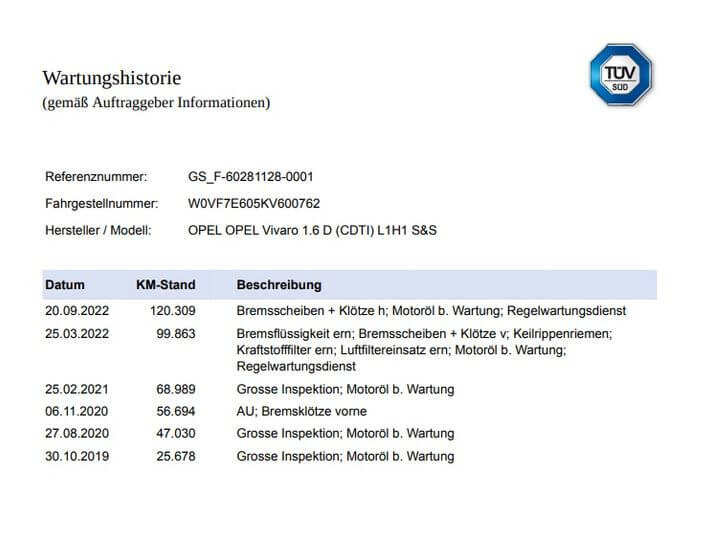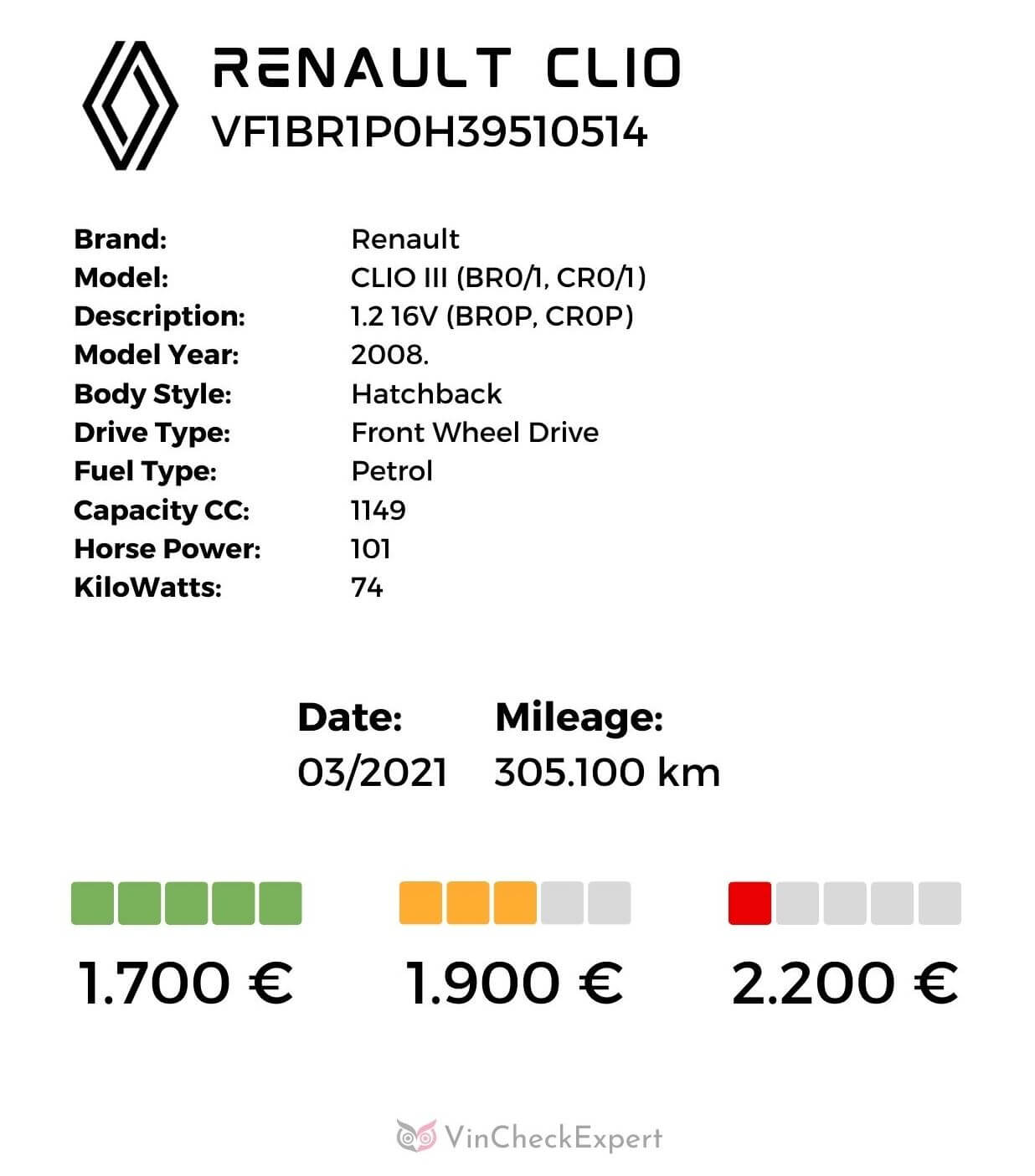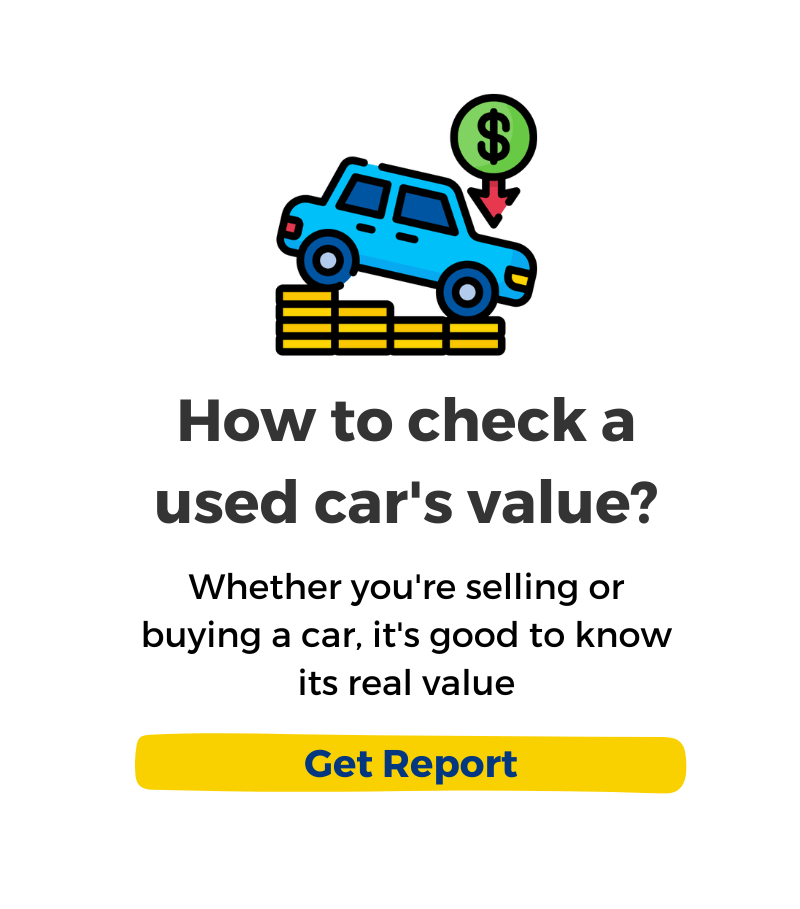How to Check Used Car Value?

Marko Stojanov
Each of us, when buying or selling his car, wants to buy another car at the lowest possible price, and sell his own at the highest possible price.
What is the real value at which we can buy a new car or sell our own car is a million dollar question!
The VinCheckExpert Report is a good way to check the market value of a used car depending on the mileage and condition of the vehicle.
What factors affect the value of a used car?
Age
Used cars lose value over time. This is a factor you cannot influence. New models appear that lead to accelerated obsolescence of the existing ones and a big drop in the price of cars in the first years of use.
Mileage
The biggest influence on the value of the vehicle is the mileage. A car that is the same age but has a lower mileage will have a higher price on the market. That's why mileage manipulations are the most common fraud in the used car market, because returning the mileage increases the price of the car.
Make and model
Well-known car brands such as VW, Audi, BMW, Mercedes are more in demand on the market and have a higher price. These cars are easy to sell, and the strength of the brand also affects their value.
Color
A car color that is in trend can have a positive effect on increasing the price of the vehicle. However, the color must be in accordance with the class of the vehicle. Orange, red, yellow or green colors for a small city car have a positive effect on their price. But for business limousines and high class cars, these colors are inappropriate. For these cars, white, black and gray are the right choice. Vehicles that are purple in color have the biggest drop in price.
Engine type
As a rule, cars with diesel engines are more expensive than cars with gasoline engines. Diesel engines depreciate more slowly, but these cars typically have higher mileage. In the future, electric motors are expected to replace diesel and gasoline engines.
CO2 emission
Many cities ban cars from downtown because of carbon dioxide emissions. The large emission of carbon dioxide has a negative effect on the price of the vehicle. That is why many older vehicles have a low price because they do not meet strict environmental standards. Usually such vehicles from Western Europe are exported to Eastern Europe, North Africa and the Middle East.
Vehicle condition
The general condition of the vehicle affects its price. Cars of the same age and mileage, if one has been serviced regularly, has a better-preserved interior, has not had an accident, may have a higher price. The service history has little influence on the final value of the car. If you are selling a small city car that is in high demand, it will sell easily without a service history.

Method of sale
If you want to sell the car quickly or sell it to a dealer, the price will be lower than if you decide to look for a private buyer through an ad.
How can I check the vehicle's value?
The prices of the same models may differ on the market. Damage and mileage significantly affect the value of the vehicle. Damage lowers the price of the vehicle, while mileage restoration without authorization increases the price of the car.
The VinCheckExpert report provides you with information on the value of a used car depending on the mileage and the basic characteristics of the vehicle. In the report you can find three vehicle values: super, fair and expensive. This information allows you to negotiate with the seller about the price and buy the vehicle at the market price, thus saving money.

Different models, the same year of production and the same mileage may have different prices. The price of a used car is influenced by many factors: whether the seller is a legal entity or a natural person, service history, regular maintenance of the vehicle, general condition of the vehicle.
A vehicle history report may contain data on mileage rollback, accidents, recalls and defects, theft, number of previous owners, pictures of the vehicle. These data affect the vehicle's value.
In our report, you will see information about the average value of the vehicle based on the specified parameters. In addition, you will receive information about the value range of the used vehicle. That is, the value that is above and below the market value.
6 tips for negotiating the price of a used car
There are 6 practical tips that can help you negotiate more easily with the seller about the price of a used car.
1) Research the car's weak points
When you decide which car you want to buy, do your research and gather the right information. What are the weak points and the most common flaws of that model, were there any recalls, experiences of other drivers. When you go to look at the car, check for these defects, this will allow you to negotiate the price of the car.
2) Don't talk a lot
Try not to show your feelings and emotions. Don't say things like "I really like this car" or "This is the car I'm looking for". Sellers can use this information in price negotiations. If they notice that you like the car and that your "eyes suck" there is less chance that they will lower your price.
3) Inspect the car in detail
It often happens that you forget to inspect the car in detail and check everything that is necessary. Make a list, as a reminder, of what you want to look at, check and what you want to ask the seller. The check is done in three steps.
Check exterior of the car
Walk around the car and inspect the vehicle shell. Check for damage, scratches, dents, gaps between panels, rubber on the doors, trunk, corrosion on the body and wheels, cracks in the windows.
Then check the suspension. Press down on each part of the car and test the shock absorbers. The car should bounce up and down once, without any noises, rattles or knocks.
Tire wear shows the owner's driving style. Uneven wear, especially on the outside and inside of the tire, indicates problems with the steering, brakes and suspension.
Check the interior of the car
Check the condition of the brake pedals, steering wheel, seat and gearbox. The wear of these elements indicates that the car has many kilometers.
Check all electronic components, interior and exterior lights, wipers, air conditioning, windows. Start the engine and check how it runs.
Check under the hood
With used cars, it is much better to have the engine dusty than to look like new.
Check for oil leaks on the engine and hoses. Check the engine oil level. If you notice that the oil is dry or drops of water, as well as metal shavings, these are symptoms that indicate problems with the engine block.
Check the condition of the timing belt and whether it needs to be replaced. Depending on the vehicle model, the timing belt is changed every 60,000 to 100,000 kilometers.
Check the coolant level and condition. If it is cloudy, milky or rusty, it can be a sign of serious problems with the engine.
Finally, check the documentation and VIN numbers. Be sure to request a test drive. This is very important in order to check how the engine is working, whether the gear is in order, etc. If you are not sure, you can take your mechanic or go to a car service. Any defects you notice can influence you to lower the price of the car in negotiations.
4) Point out the flaws to the seller
If you notice any flaws, tell the seller what you noticed. Negotiations have just begun. Point out everything that's wrong and how much it might cost to fix. This gives you a good basis to lower the price of the vehicle.
5) Make an offer
If you are buying a car for 5,000 euros and you have noticed flaws, which you think would cost about 500 euros to repair, do not make an offer to the seller for 4,500 euros. Start with an even lower offer of 4,000 or 4,200 euros. Surely there is another drawback that you haven't noticed that you can't see, so leave yourself room for unplanned expenses. The seller is usually dissatisfied with the first offer and makes a counter offer. Most often, the sale is realized at a price that is between the one offered by the buyer and the one the seller is asking for.
6) Get a vehicle history report
The VinCheckExpert Report allows you to get the average market value of each model, as well as the minimum and maximum price you should pay, based on vehicle data. You can show the report to the seller and this price is an excellent basis for negotiating the price with the seller.
How to create a used vehicle history report by chassis number (VIN)?
All you need to do is enter the 17-digit VIN number in the "Enter VIN" field and click the Search button. After a few seconds, VIN Decoder will provide a free VIN check and some basic information. This info should be enough to check whether the VIN is valid or not.
To create a complete report about the vehicle, such as mileage records, odometer fraud, estimate mileage, accidents and damages, theft check, market value, and previous images, you should download a VinCheckExpert vehicle history report.

VinCheckExpert also checks for:
Check VIN number and car history here!
100% money back guaranteed! 

